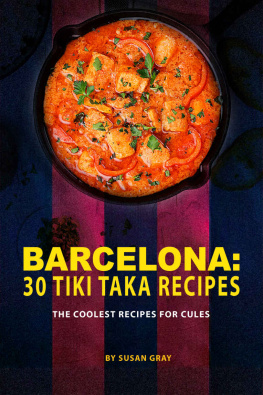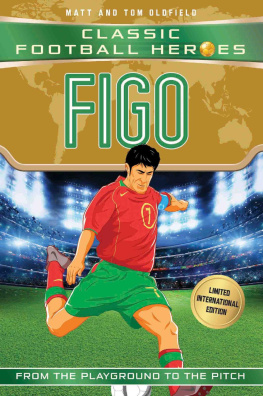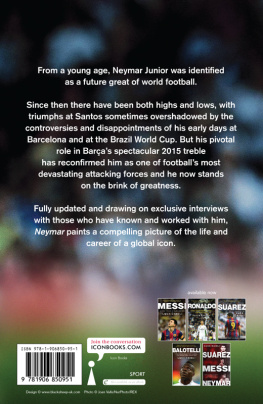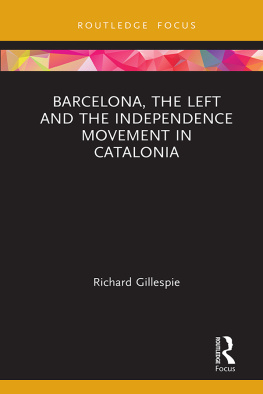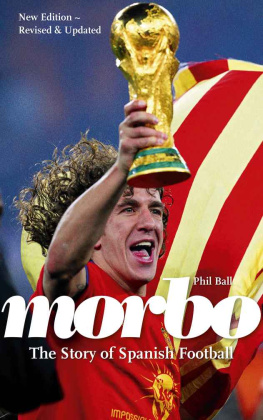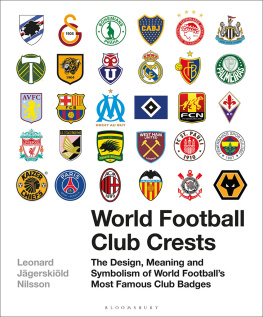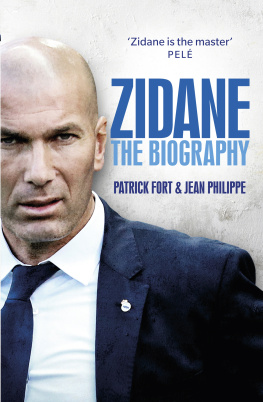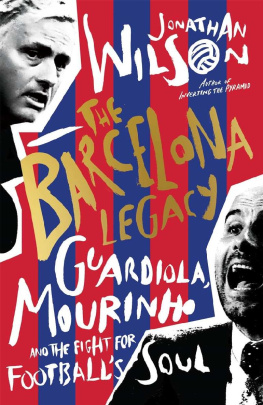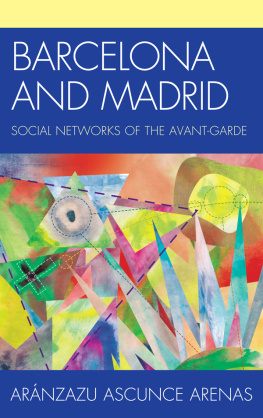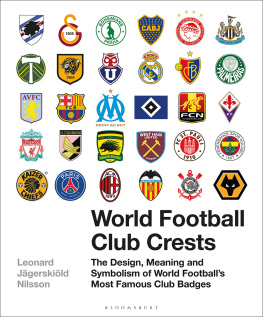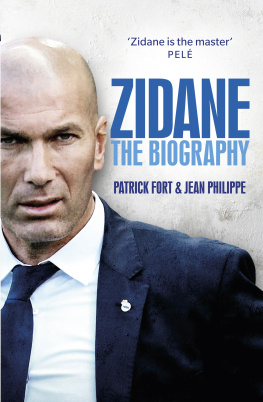First published in Great Britain 2012
Copyright Richard Fitzpatrick 2012
The moral right of the author has been asserted.
This electronic edition published in 2012 by Bloomsbury Publishing Plc
All rights reserved
You may not copy, distribute, transmit, reproduce or otherwise
make available this publication (or any part of it) in any form, or by any means
(including without limitation electronic, digital, optical, mechanical, photocopying,
printing, recording or otherwise), without the prior written permission of the
publisher. Any person who does any unauthorised act in relation to this publication
may be liable to criminal prosecution and civil claims for damages
Bloomsbury Publishing Plc
50 Bedford Square
London WC1B 3DP
Bloomsbury Publishing, London, New Delhi, New York and Sydney
A CIP catalogue record for this book is available from the British Library
eISBN 978-1-4081-7108-0
Visit www.bloomsbury.com to find out more about our authors and their books
You will find extracts, author interviews, author events and you can sign up for newsletters to be the first to hear about our latest releases and special offers
CONTENTS
Para Michelle
FC Barcelona versus Real Madrid El Clsico as it has become known to fans all over the world is without doubt the biggest club game on the planet: the clash that stirs the strongest passions; polarises families, friends and nations; and enjoys the largest TV audience of any football rivalry. It has become a regular, essential event in the football fans calendar and is as likely to spark debate among English-speaking fans as any domestic fixture. El Clsico may be more international than ever but, as this book explains, its as partisan as at any point in the past, and in recent times the addition of Jos Mourinho into the mix is exactly the kind of theatrical confrontation that this symbolic clash thrives upon.
Throughout the previous century, El Clsico was frequently presented as a David and Goliath story, with Barcelona relishing its status as the underdog, while Real Madrid has been more than happy to play the role of the big guy. But how much do those roles reflect reality? Barcelona fans will tell you that their club spent half the twentieth century struggling against the odds to overcome a rival that enjoyed the backing of a brutal dictator; yet, while General Franco was known to have enjoyed a flutter on the pools, his actual engagement with club football was far more limited. In fact, most Barcelona fans forget to mention that in the immediate post-Spanish Civil War years, when the regime was at its most repressive, the Catalan club was considerably more successful than its rival in Madrid. Likewise, after Franco died, Barcelona fans waited a decade to see their side win a league title, while Madrid went on to win four of the first five during that period. On the other hand, those Real Madrid ultras who celebrate their clubs Spanish identity in the extreme probably squirm at the realisation that it is FC Barcelona, not Real Madrid, who now provides more players for the national team.
But lets not let these facts get in the way of the entertainment. The Catalan writer and fanatical Bara fan Manuel Vzquez Montalbn once wrote that FC Barcelona is, for Catalan nationalists, the symbol of St George that periodically goes out and slays the metaphorical dragon of Real Madrid on our behalf so we dont have to. And as this book brings us up to date, we see how Mourinho has been more than happy to turn up in Barcelona playing the role of dragon, breathing fire, insults and witticisms in the direction of Pep Guardiola, a St George for the modern Catalans if ever there was one.
Of course, Barcelona versus Real Madrid remains essentially a Catalan and Spanish obsession. However, the fantastic level of research and broad spectrum of contributions from all sides of the great divide included in this book mean that youre holding an incredibly valuable, objective account of this sporting rivalry that is all the richer for being an attempt by a non-Spaniard to comprehend it. For anyone who wants to understand why Barcelona v Real Madrid means so much more than a straightforward match between an unparalleled array of footballing stars, this book should become essential reading.
Guillem Balague, March 2012
It was an extraordinary day. On 27 April 2011, the front page of El Pas, Spains newspaper of record, led with a story about Barcelonas manager, Pep Guardiola. The Catalan is known as a calm person. The previous day he exploded on national television, cursing twice during a 45-minute tirade. He was provoked. Jos Mourinho, Real Madrids manager, had been goading him all season. The sour relations between the two clubs had reached fever pitch during an unprecedented four-game series in 18 days. Later that day, the teams were set to play in their third instalment, the first leg of the Champions League semi-final at Madrids Bernabu stadium.
Spain was consumed by the conflict, which has long been a proxy war in a divided land. Distracted by the match later that day, Spanish national radios flagship current affairs programme shelved talk about the countrys collapsing economy so its leading political analysts could hold a 30-minute discussion on a football rivalry. The rest of the world looked on agog. When the teams took to the field at 8.45 p.m., the bones of half a billion people watched on television. The teams were stocked with the men who won Spain its first World Cup and the planets two greatest players Cristiano Ronaldo and Lionel Messi.
The aesthetes among those viewing, however, were disappointed. The match was a grim, tense encounter, the football dreary. There were several flashpoints. Just before half-time, Sergio Busquets and Real Madrids Marcelo clashed in the middle of the pitch. As they dusted themselves down from their jostle, Busquets was caught on camera twice calling the Brazilian a monkey, or so it appeared, although he was later cleared of racist abuse charges by a UEFA tribunal. When the teams stopped for the half-time interval, a mass scuffle erupted as they made their way to the dressing rooms. Barcelonas reserve goalkeeper Jos Manuel Pinto got a red card for a set-to with Chendo, Real Madrids suited match-day delegate.
Barcelona continued to hog the ball in the second half; Real Madrid were content to hunker down in their half of the pitch. In the 61st minute, the games defining play happened. Pepe, Real Madrids midfield enforcer, was sent off for seeming to clobber Dani Alves in a reckless, studs-up tackle. Replay footage showed he mightnt even have made contact with the Brazilian defender. While the Barcelona full back was being stretchered off dramatically only to return in rude health two minutes later Mourinho also got his marching orders for sardonically applauding the referees decision. He walked a few steps along the touchline and took up a seat in the stands beside his teams dugout. He spent the remaining half-hour of play passing written instructions to a lieutenant. Conspicuously, he had to pass the notes through bars in front of his seat. The screeching, whistling and bollocking around the Bernabu stadium, which had accompanied Barcelonas keep-ball play throughout, was raised a notch. It was grating, like the shrill sound effects from a bad horror movie.
In the last quarter, some football broke out. Messi got on the end of a low cross on the edge of the six-yard box to open the scoring for Barcelona. With three minutes left on the clock, he did something divine. He gathered the ball by the centre circle in Real Madrids half. He found his way blocked by Lassana Diarra. He moved the ball gently forward to Busquets who had his back to goal. His teammate trapped it and swivelled 90 degrees. Then, like a second handing a duelling pistol to a nobleman, he casually presented the ball for Messi who bore down on goal. The Argentinian flashed his way past five defenders before clipping the ball low into the corner of the net. Iker Casillas, Real Madrids goalkeeper and captain, who had fallen onto his backside, sprung reflexively back to his feet. His hands were still spread wide in saving mode, as he asked no one in particular what on earth had transpired.


